One French Couple's Love Affair with the Catalan Capital
Nov 13, 2019
6 mins
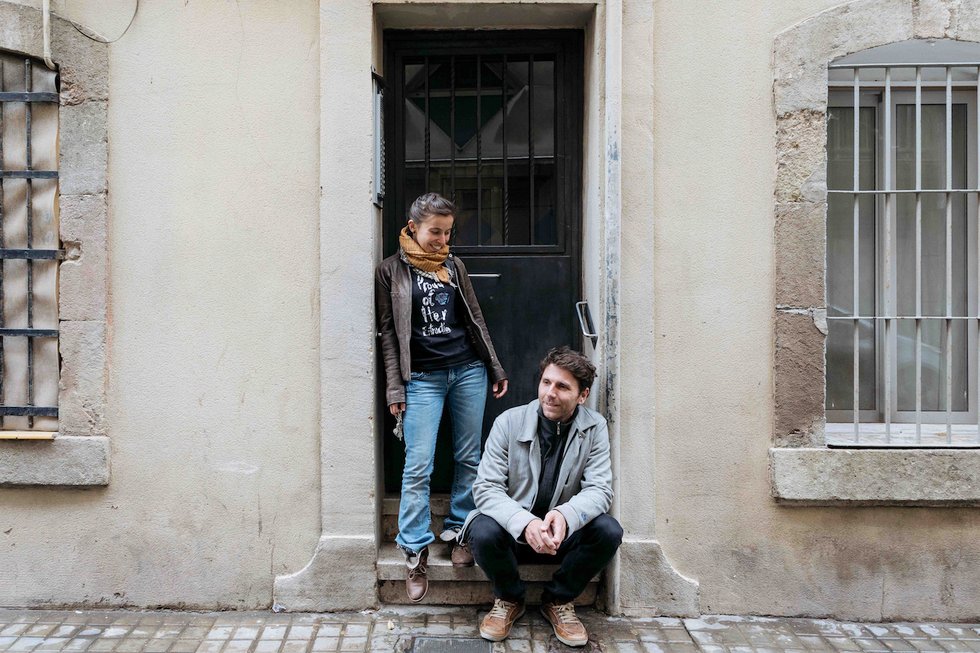

Senior Editor - SOCIETY @ Welcome to the Jungle
Five years ago, French nationals Alice and Nicolas, both aged 30, decided to give up everything and relocate to Barcelona. What began with a moving truck and the paperwork for their arrival soon saw them living like locals and going through every imaginable workplace scenario: the VIE (French International Internship Program), full-time contract, unemployment, freelancer status, and more. They share with us how the Catalan capital captured their hearts and became home.
In September 2013, you both decided to leave Strasbourg, in France, and come to work in Barcelona. What led you to make this life change?
Nicolas: We wanted to work abroad and move closer to the sea. We narrowed our choice down to Barcelona because the easiest way to achieve our goal was through my company, by way of the French International Internship Program. At the time, I was in Alsace, working as a senior R&D manager with Natural Power, a consultancy firm that provides full support and guidance to wind-power projects. Since we had a partner company in Barcelona, I was able to get set up here while maintaining ties with the parent company.
Alice: Because I still hadn’t found a fixed situation workwise, I could move anywhere! Barcelona, first and foremost, was somewhere I could continue my studies in Europe—a postgraduate university degree in intercultural project management.
What were your impressions of the city when you came to live here?
A: Nicolas already knew and loved Barcelona, but I’d only ever spent a weekend here. At the beginning, I was struck by how immense the city seemed. I spent the first weeks of autumn walking around the streets of El Born, El Gótico and La Barceloneta. Barcelona will soon have you hooked! You come for a few days and end up falling in love with the place!

Was it easy getting settled?
N: The first week, we were able to stay with a couple of French friends. We visited three apartments per day, but the rent in Barcelona was higher than we expected, and we arrived right in the middle of September—the same time as all the students. The last apartment we saw was in Barceloneta, and we just fell for it.
A: We’d only just moved in when we started taking steps to obtain our NIE (foreign identity number). It’s what you need if you want to open a bank account and get a contract for things like phones and the internet.
Was it hard to get?
N: For sure! Once you get the date for your first appointment, you’d better be on time, because it’s super-crowded and nobody is willing to wait for you. After that, the process takes time because you’re always missing some document or other, which means arranging a new appointment online and waiting all over again.
A: It’s better to apply in the outer districts, as it will be processed faster. Whatever you do, don’t apply in the center of Barcelona.
Nicolas, you already spoke some Spanish before coming here, but, Alice, you didn’t speak a word. Did you find it hard to integrate into local life?
A: It certainly was a huge gamble. However, several weeks of language courses and preparing my thesis meant that I was thrown in at the deep end somewhat. Also, Spanish people are patient and open-minded. No one judges you just because you have an accent or don’t conjugate a verb correctly.

Nicolas, you were able to come to Barcelona on a VIE that you obtained through your company in France. What was this first step like, professionally speaking?
N: To get my VIE signed by the French state, I had to take unpaid leave. Once in Barcelona, I mostly worked from home and I rarely returned to Strasbourg. At the same time, I was in constant contact with the three people in my team, all of whom were still in Alsace. After two years, the company had to close the Strasbourg office. My VIE ended at the same time, but since I was in charge of an important ongoing project, I offered to keep working from Barcelona as a contractor for the company. I subsequently registered as an autónomo, the equivalent of an independent contractor.
The autónomo status is a divisive issue in Barcelona. Many companies only recruit under this status, which is beneficial for them but precarious for employees.
N: Becoming an autónomo is very simple—all you need to do is register with the Hacienda (Tax Office) and then with social security. The big problem with this status is that it’s expensive. Whether or not you have any revenue, you have to pay a monthly contribution to social security—about €275 after two years, on top of annual taxes. It’s also super-complicated keeping up with the payments. At the end of each quarter, you must declare your VAT expenses and balance. And since any oversight can be severely punished, most of the freelancers I know hire the services of a gestor (an accountant, which costs €60 a month) for both the quarterly and annual declarations—la renta.
Alice, starting with your first part-time contract, you were hired under the status of a local employee. What was this initial professional experience like for you?
A: When I began part-time as a community manager, I worked from home and sometimes in a coworking space with my team. The minimum wage is very low—I certainly couldn’t afford to pay for the coworking space every day. So I was really missing having social contact. I looked around for something else and, in November 2014, I was hired as a salesperson for a coffee import-export company. I had a fixed salary and sales commissions, which is a pretty standard way for employers here to avoid increasing salaries. More importantly, I was hired under an apprenticeship and a professional training contract, so I was quickly promoted! Let’s just say that this status has many advantages for employers.

In November 2017, you left your job. What was it like getting access to unemployment benefits?
A: When my contract ended after three years, I was supposed to change my position in the company and take on new responsibilities. I talked to my boss and we were able to part on good terms. This gave me the right to unemployment benefits, which is impossible when you get fired. As a foreigner with a residency and work permit, I had the same rights as any Spanish employee in my situation. As far as the procedure goes, you have 15 days from the official end of your contract to enroll with the SEPE (Servicio Público de Empleo Estatal), which is the equivalent of a local Job Center.
The complicated part for me was that, because I’d been hired under an apprenticeship and a professional training contract, I wasn’t paid “normally.” I started with a rather low monthly salary and, to avoid giving me a raise, my boss had made up for it with commissions. This had a negative impact on my rights to unemployment benefits—none of my bonuses were taken into account. At the same time, I was paying tax on the extra income! Needless to say, finding out that I would only get €500 a month in unemployment benefits came as a huge blow.
Nicolas, for your part, you stopped working for your French company in July 2016 and went down the freelance route. How did that go for you?
N: Thanks to my autónomo status, I was able to launch a bunch of projects, while making sure I had developer jobs on the side as well. To all budding entrepreneurs, I would recommend going to see the community organization Barcelona Activa. They provide lots of information and give courses on things like company legal status, taxation, marketing, and computer science, in three languages—Catalan, Castilian Spanish, and English. Right now, I’m working on a theater app called Dramarts, for which I’ve requested two types of assistance, one from the Ministry of Education and Culture—national—and one from the Catalan Institute of Finance—regional. Like everywhere else, you have to fill out forms and submit a business plan. From what I’ve seen so far, the amount of assistance is, on average, lower than in France and there is less available.
A: Another difficulty in Barcelona is the complexity between the prerogatives of the state and those of the Catalan region. Especially after the Catalan government was suspended in October 2017—all regional budgets were frozen just as Nicolas was starting out. As a result, it was particularly hard to obtain subsidies.
Why have you decided to stay in Barcelona for a few more years?
A: The geographic location between the sea and mountains, the weather, the spontaneity and openness of its people, who amaze us every day. For me personally, I love how the city is still totally capable of surprising me.
N: We are about to go on a year-long tour of countries around the world that produce coffee. After that, we’ll be coming back to live in Barcelona!
Photos by Thomas Decamps
Translated by Andrea Schwam

More inspiration: Work in Barcelona
Moving to Barcelona for work? Navigate the job jungle in this international hub with our insider tips, advice from locals and insights from industry experts.
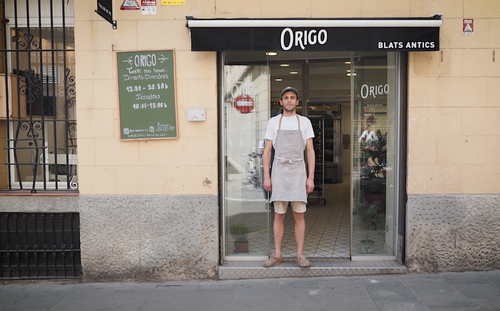
Work in Barcelona: François
Originally from Belgium, he left his job at Google in San Francisco to move to Barcelona with his wife, where he decided to open his own bakery.
Dec 11, 2019
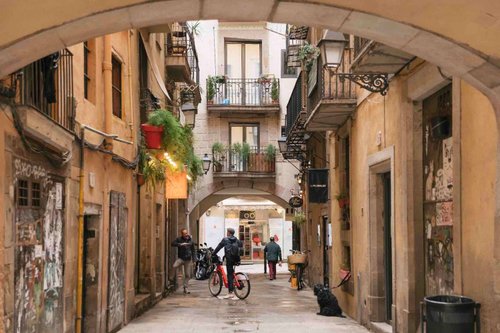
Work in Barcelona
Considering relocating to Barcelona? Let’s have a look behind the scenes to understand what it takes to be a happy expat in Barcelona.
Dec 11, 2019
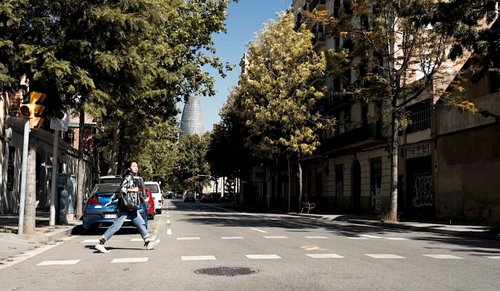
Work in Barcelona: Amy
Born and raised in Canada, Amy moved to Barcelona to change career by retraining as a software developer. Here's her expat experience of the city.
Dec 11, 2019
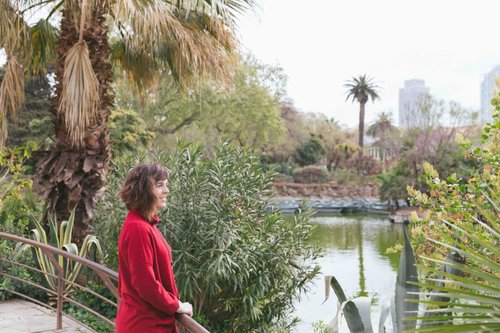
My Barcelona: ‘The city is so much richer than it seems’
For Anaïs, Barcelona is such an enticing city that she has made it her home not once, but twice.
Nov 13, 2019
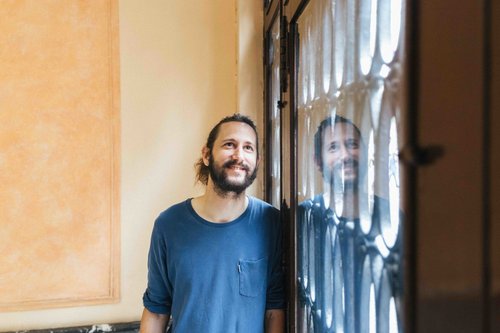
My Barcelona: ‘It’s the Silicon Valley of Europe’
Frenchman Erwan Riou originally qualified as an architect, but after a stint in Brazil, the 33-year-old started retraining as a programmer...
Nov 13, 2019
The newsletter that does the job
Want to keep up with the latest articles? Twice a week you can receive stories, jobs, and tips in your inbox.

Looking for your next job?
Over 200,000 people have found a job with Welcome to the Jungle.
Explore jobs